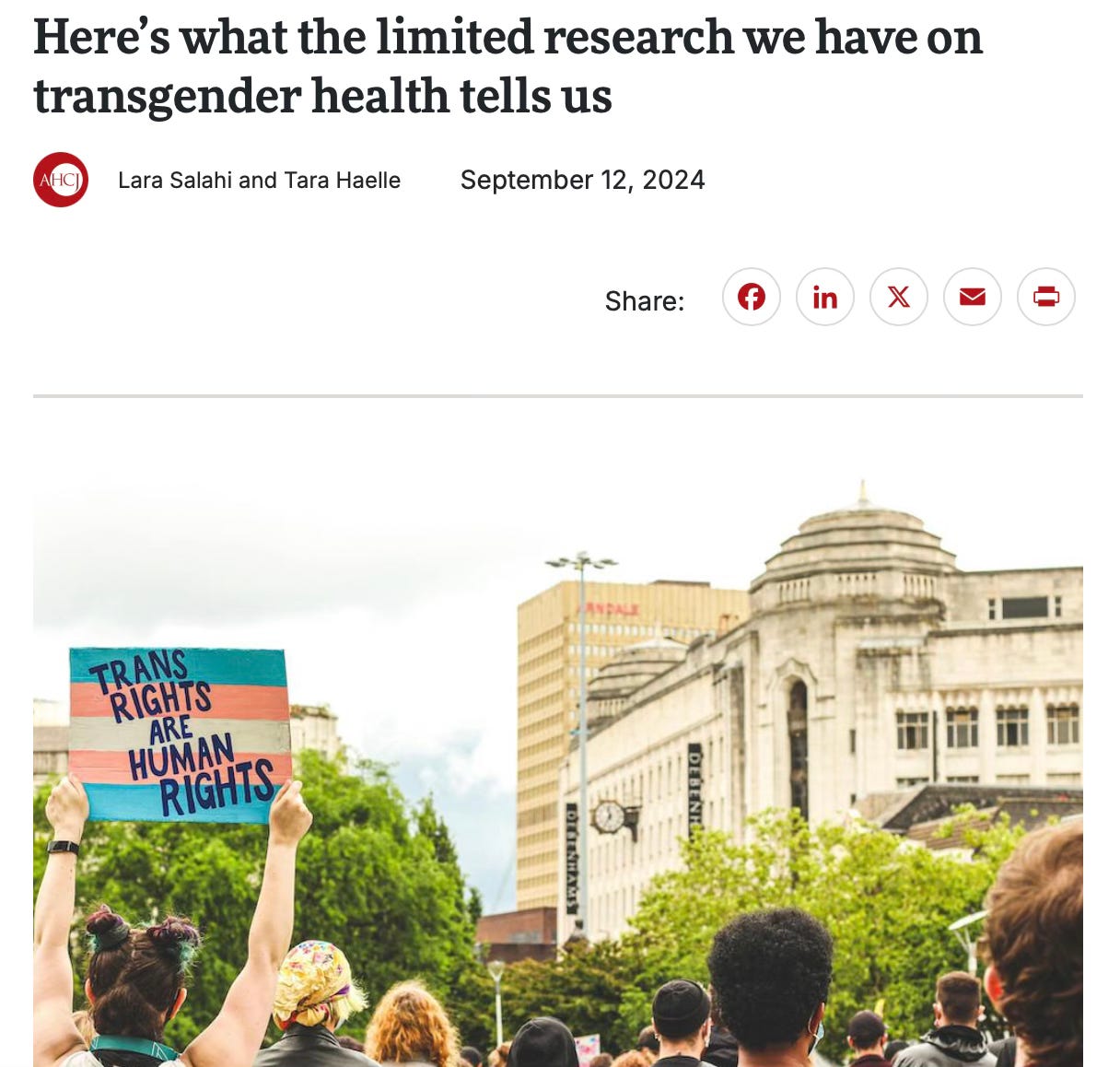Association of Health Care Journalists Makes Extensive Changes to Faulty Primer On Transgender Medicine Reporting, But Flaws Remain
After journalist Jesse Singal objected to the AHCJ's false claims about his reporting and I covered the primer's flaws, the organization backpedaled—but has egregiously not acknowledged any errors.

After the Association of Health Care Journalists on Sept. 12 published a primer on covering transgender medicine that I reported on Sept. 14 was highly misleading and at certain points erroneous, the AHCJ has made extensive changes to the document as of Sept. 17.
However, the organization has not acknowledged publishing any errors in the original document and has not issued an official correction, as it definitely should. Instead, AHCJ added an editor’s note to the opening of the document that states the following:
Editor’s note: This article has been revised to more clearly describe who is affected by state laws on gender-affirming care. It has also been edited to clarify that The Economist’s reporting relied on emails and multiple court documents rather than solely on an amicus brief. Additionally, the characterization of the impact of the Cass Review has also …
Keep reading with a 7-day free trial
Subscribe to Hazard Ratio: Benjamin Ryan to keep reading this post and get 7 days of free access to the full post archives.



